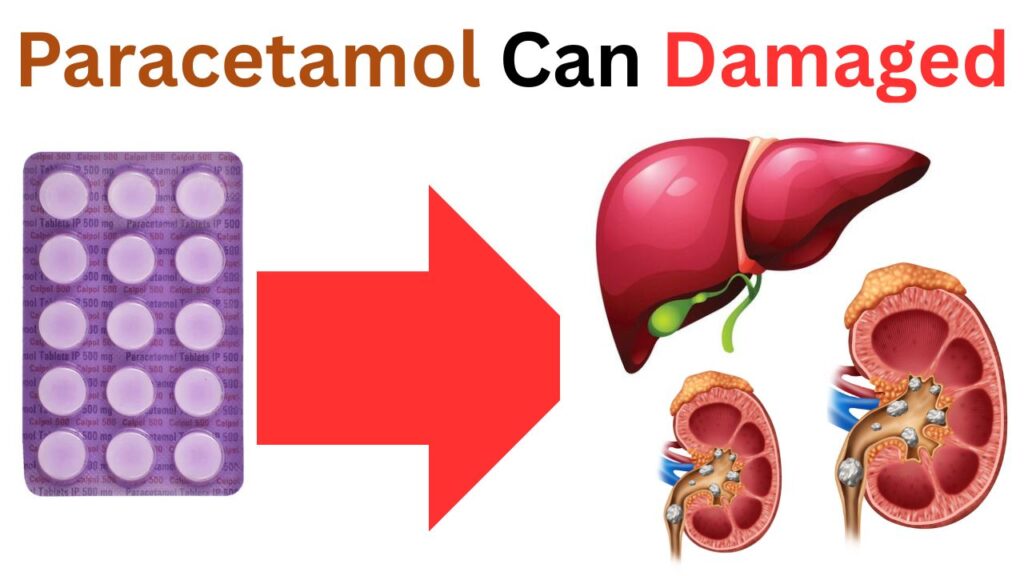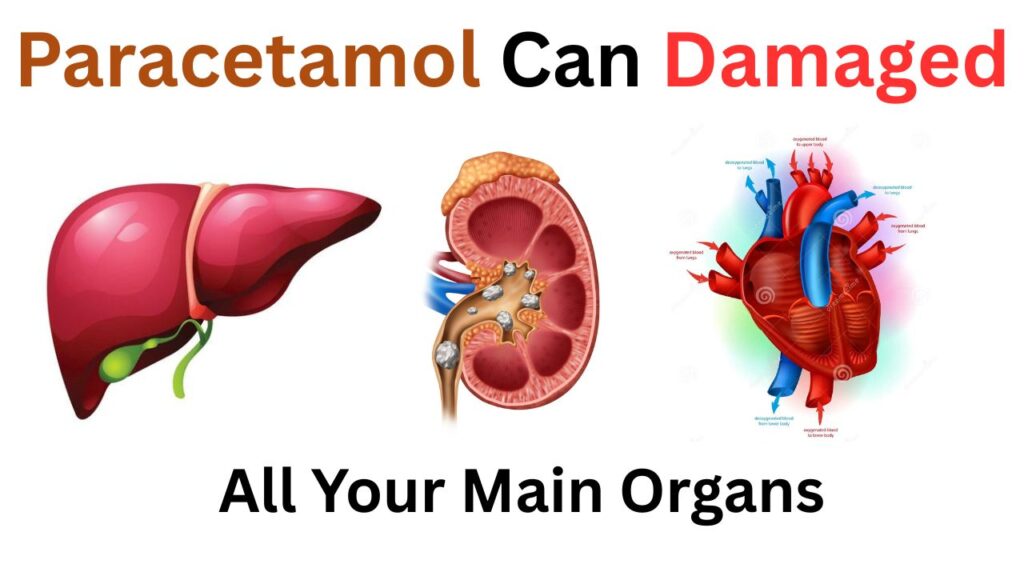Is it dangerous to take paracetamol long-term? Paracetamol (also known as acetaminophen) is commonly used medication in the world. For a headache, fever, muscle pain, or cold and flu symptoms: Most of us take it nearly every day. It is easily purchased over the counter; is perceived as safer than NSAIDs like ibuprofen or aspirin (although this is no longer considered by many large health organizations to be true); and has been widely trusted by patients, doctors and in randomized trials.
But here’s the question so many people ask: what happens if you take paracetamol every day for months—or even years? Occasional doses, though, are generally considered safe — but long-term daily use may not be as harmless as most people think. Science has also indicated that regular use of paracetamol may leave a heavy toll on the liver, kidneys and heart as well as could possibly lead to higher blood pressure in some individuals.
In this blog, we’ll explore:
How Does Paracetamol Work?
It is believed to work by inhibiting the action of a chemical in the brain which signals pain. It also does not carry the same kind of wear and tear on the stomach lining or effect on blood clotting as anti-inflammatories like ibuprofen or aspirin. That’s why, most people especially those who have sensitive stomachs prefer it.
Paracetamol Dose for Adults Per Day
According to the U.S. FDA and international guidelines:
- The usual adult dose is 500–1000 mg every 4–6 hours as needed.
- Do not exceed 4000 mg (4 grams) in 24 hours.
- However, the concept of a maximum safe dose in continuous or nearly daily use of paracetamol at 3000 mg/day to limit the risk of liver injury deserves further attention.
Is It Safe to Take 2 Paracetamol Every Day?
If “2 paracetamol” mean 2 × 500 mg tablets (1000 mg) once daily just about any healthy adult could manage that short term. But problems arise if:
It is used once a day for months or years with no medical scrutiny.
Accidentally taken along with other paracetamol-containing products (such as cold/flu preparations).
Captured by an individual with liver disease, chronic alcohol use or kidney issues.
And even when consumed within “safe” daily limits, longer-term regular use of these products has been tied in observational studies to greater risk of high blood pressure, kidney damage and gastrointestinal troubles.
What Are the Side Effects of Taking Paracetamol Daily?

Acute side effects have occurred only rarely at normal dosage. But the potential risks increase with more frequent or extended use:
- Liver failure: Paracetamol is processed by your liver, and you should not put it under constant strain, especially if you drink alcohol.
- or Kidney problems Some research indicates long-term use can elevate the chances of getting kidney disease.
- Cardiovascular System Disorders: The use of high doses for extended treatment may produce some cardiovascular risk, but this has not been definitely confirmed.
- Gastrointestinal problems: Gentler for the gut than NSAIDs, high doses over time might be bad for your gut.
Paracetamol Side Effects (General)
General side effects include:
- Allergic skin reactions (rare)
- Nausea, upset stomach
- Dizziness or tiredness (occasionally reported)
Most are mild, but in combination with alcohol or large ingestion amounts can cause severe reactions.
What Are the Side Effects of Paracetamol 500 mg?
The 500 mg dosing is widely tolerated. Possible mild effects include:
- Nausea or stomach upset
- Allergic skin reactions
- Liver fatique in presence of alcohol, or when used excessively
There may be rare side effects too with a high daily dose, or combined with alcohol/liver disease.
What Happens If You Drink Alcohol After Taking Paracetamol?
Both alcohol and paracetamol are metabolised in the liver. But by blending the two you raise the probability of a liver injury — even if every constituent is taken in supposedly moderate doses.
- An occasional drink and an occasional paracetamol: Generally considered safe in healthy adults.
- Regular alcohol + regular paracetamol: Much much bad for your liver.
When Is It Safe to Take Paracetamol After Drinking Alcohol?
The experts advise to wait a minimum of 24 hours after heavy drinking before taking paracetamol. If you only consumed a couple of drinks, then 6–8 hours would be the usual advice — but always err on the side of caution.

Paracetamol Daily for Years – What Research Says? or Is it dangerous to take paracetamol long-term?
One 2018 review concluded that regular long-term use of paracetamol was associated with small but meaningful increases in blood pressure, kidney problems and gastrointestinal bleeding, although the risks were less than those associated with taking NSAIDs.
The most concerning risk is liver damage, particularly at or close to maximal recommended daily dose or with concomitant alcohol use.
Observational studies indicate that long-term use should be managed closely by a physician, with the lowest effective dose for the shortest duration.
Key Takeaways of Is it dangerous to take paracetamol long-term?
For most people, they’re safe when taken at the recommended dosages and intervals.
There is the danger of long-term daily use, from liver and kidney disease to high blood pressure; there may be effects on the GI tract as well.
Taking 2 tablets a day might not seem like much, but the risks could potentially accumulate in consumers who take PPA that have years on end, especially if used in conjunction with alcohol.
Remember to always check product labels of drugs – many cold/flu products already contain paracetamol.
If you are taking painkillers every day for weeks or months to get through your workday, J.C. Jakubczak says, you should see a doctor about safer options and whether there might be an underlying issue at work.

Disclaimer
Just to be clear, this is an educational article and not medical advice. However, paracetamol – also known as acetaminophen – is safe to take at normal doses but can be dangerous over the long term or if taken daily. Always follow the dosage information on the packet, and see your doctor if you take paracetamol for long periods of time – particularly if you have liver disease, kidney problems or drink alcohol habitually.
Hello everyone, I am Md Habibullah Sheikh a registered Pharmacist with 6 years of experience in Clinical, Community, and corporate pharmacy. I have worked for HLFPPT, Gauripur Hospital, Reliance Retail Pharma (Netmeds) as well and Now working for Zota Health Care as a Senior Pharmacist. We, In Health Easy Fitness, share trustable health education, tips & awareness to help people find the best health choice. Always talk to a doctor before taking any kind of Health issue Decision.
